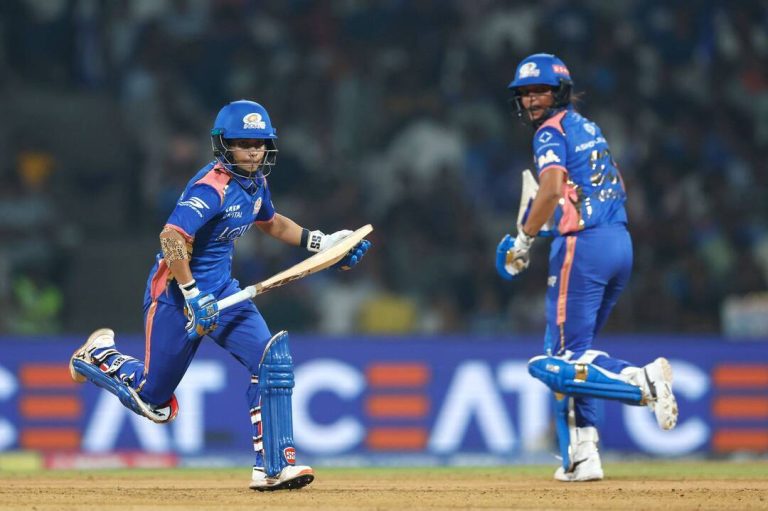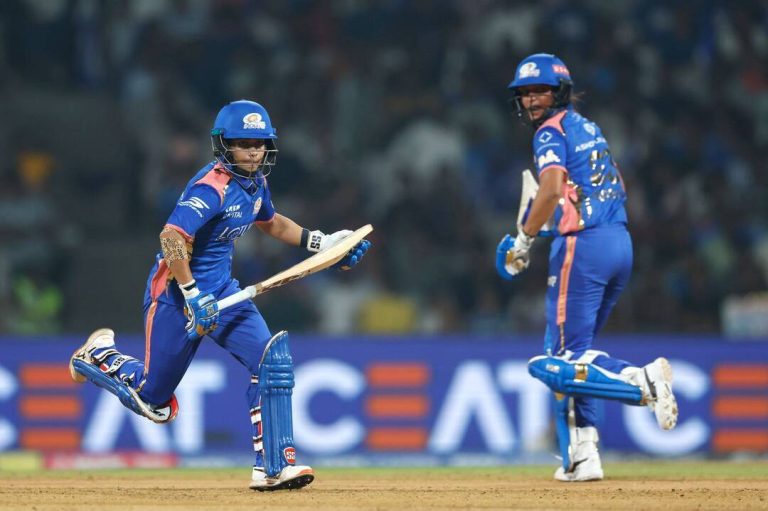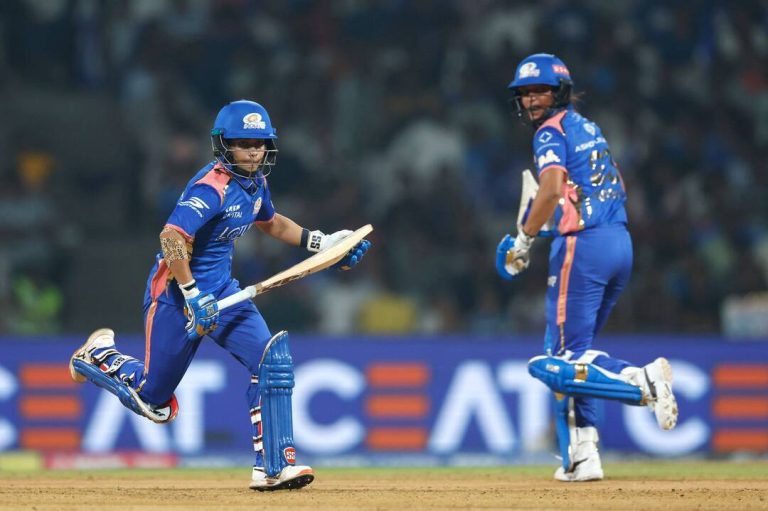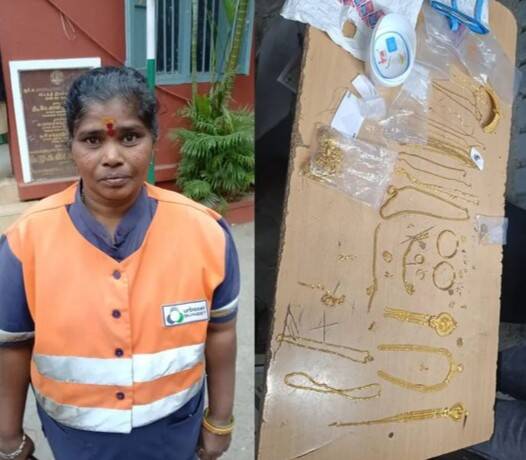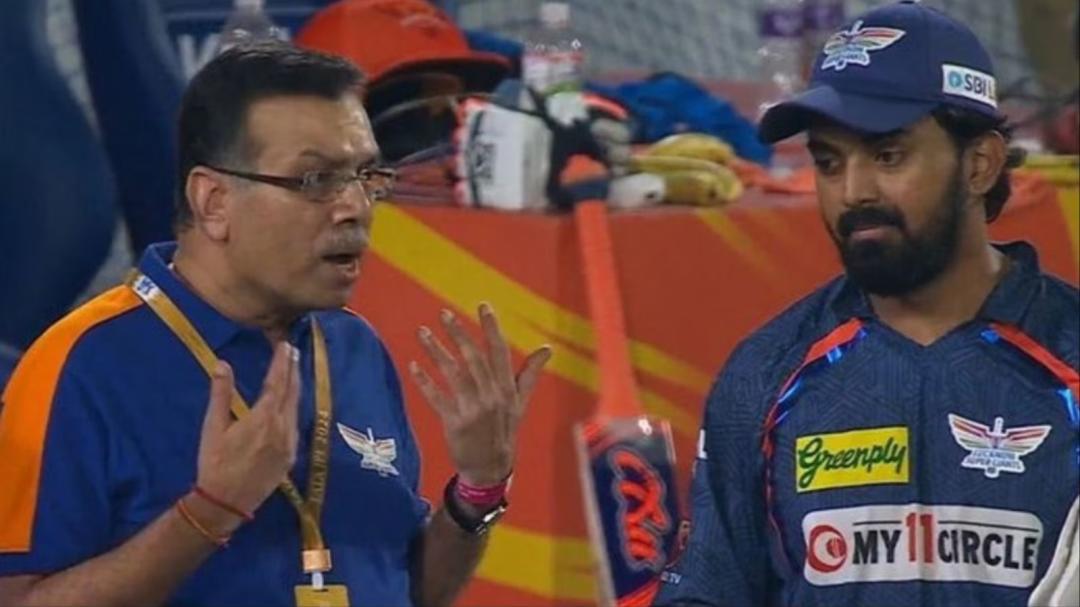
KL Rahul takes indirect dig at LSG owner Sanjiv Goenka
The Indian Premier League (IPL) has been a platform for cricketers to showcase their skills, but it also comes with its own set of challenges. One of the biggest challenges that captains face is dealing with the owners of their respective teams. The owners, who are often successful businessmen, may not always have a deep understanding of the game, which can lead to conflicts and difficulties for the captain. Recently, Delhi Capitals’ (DC) KL Rahul took an indirect dig at his former team, Lucknow Super Giants’ (LSG) owner Sanjiv Goenka, highlighting the challenges of dealing with owners who lack cricket experience.
Rahul, who was the captain of LSG in the past, spoke about the difficulties he faced while leading the team. “What I found hard…was…meetings…you needed to do and explain at ownership level,” he said. This statement suggests that Rahul had to spend a lot of time explaining his decisions and strategies to the team owners, which can be frustrating and time-consuming. He further added, “You’re being asked, ‘Why did you make this change?’ ‘Why is it…the opposition got 200 and we couldn’t…get 120’?” This quote highlights the kind of questions that owners, who may not have a deep understanding of the game, can ask, which can be challenging for a captain to deal with.
Notably, Goenka once publicly scolded Rahul after a loss when he was the LSG captain. This incident suggests that Goenka may not have a complete understanding of the game, and his expectations from the team may not always be realistic. As a captain, Rahul would have had to deal with the pressure of performing well, while also managing the expectations of the owners. This can be a difficult task, especially when the owners are not familiar with the nuances of the game.
Rahul’s comments have sparked a debate about the role of owners in the IPL. While owners are essential for the financial success of the teams, their lack of cricket experience can sometimes create problems for the captains and the players. The IPL is a highly competitive tournament, and teams need to make quick decisions to stay ahead of their opponents. However, when owners are involved in the decision-making process, it can slow down the team’s response time and affect their performance.
The issue of owners interfering in the team’s affairs is not new to the IPL. There have been several instances in the past where owners have been accused of meddling in the team’s selection and strategy. This can be frustrating for the captains and the coaches, who may have a different vision for the team. The owners may have a lot of faith in certain players, which can lead to them being selected in the team, even if they are not the best fit.
Rahul’s comments are a reminder that the IPL is not just a cricket tournament, but also a business. The owners are invested in the teams, and they want to see a return on their investment. However, this can sometimes lead to conflicts between the owners and the captains. The captains want to win matches and make the team successful, while the owners may be more focused on the financial aspects of the team.
In conclusion, KL Rahul’s comments about the challenges of dealing with owners who lack cricket experience are a timely reminder of the complexities of the IPL. The tournament is not just about cricket; it’s also about business and finance. The owners play a crucial role in the success of the teams, but their lack of cricket experience can sometimes create problems for the captains and the players. As the IPL continues to grow and evolve, it’s essential for the teams to find a balance between the owners’ expectations and the captains’ vision for the team.
The debate about the role of owners in the IPL is likely to continue, and Rahul’s comments have added a new dimension to the discussion. The IPL is a highly competitive tournament, and teams need to be able to make quick decisions to stay ahead of their opponents. However, when owners are involved in the decision-making process, it can slow down the team’s response time and affect their performance. The teams need to find a way to balance the owners’ expectations with the captains’ vision for the team, and this may require a more nuanced approach to the decision-making process.
As the IPL continues to grow and evolve, it’s essential for the teams to prioritize the cricketing aspects of the game. The owners may have a lot of faith in certain players, but the captains and the coaches need to be able to make decisions based on the team’s needs, rather than the owners’ preferences. This may require a more collaborative approach to the decision-making process, where the owners, captains, and coaches work together to make decisions that are in the best interest of the team.
In the end, the success of the IPL teams depends on a variety of factors, including the owners, captains, coaches, and players. The owners play a crucial role in the financial success of the teams, but their lack of cricket experience can sometimes create problems for the captains and the players. As the IPL continues to grow and evolve, it’s essential for the teams to find a balance between the owners’ expectations and the captains’ vision for the team.
